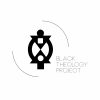Remembering King came from a community: searching for the British equivalent?
Following the 50th anniversary of Dr Martin Luther King Jr’s death, Dr William Ackah from Birkbeck University in London, England looks at how the civil rights leader was shaped by black churches, communities and institutions, and asks why there has been no equivalent figure in Britain. #MLKGlobal
This month has marked the 50th anniversary of Dr Martin Luther King Jnr. A 20th-century prophet and icon whose soaring oratory, towering intellect, political agitation and tireless advocacy for justice and peace still resonates today. In the rush to remember the icon what often gets left behind is the simple fact that first and foremost King was a black Baptist Church minister. The man that King became was forged and fashioned in the songs, sounds and spirit of the black church and black community. It was black institutions such as Morehouse College that educated him, it was predominantly black church members that marched, went to prison and were beaten alongside him and it was black social and political concerns that provided the motivation and inspiration for what he lived and ultimately died for. In the years since King’s death, he has been to an extent mythologised out of the black community and black spiritual prophetic tradition. We constantly hear ‘I have a dream’ but this narrow utopian unity framing of King does a terrible disservice to the more radical King and what he stood for in regards to economic, political and social justice for black people and poor people of all races. Thinking about how King has been taken out of his community is reminiscent of how a 21st-century iconic black figure was also removed from his black spiritual heritage by a white political and media-driven campaign.
Wright, like King, preached truth to power and used his pulpit to stand up for oppressed and marginalised people of colour.
Barack Obama, it can be argued owes his soaring oratory, powerful intellect and social justice roots to his time spent in Chicago’s black community and most tellingly his spiritual foundations to Trinity United Church of Christ under the ministry of Jeremiah A Wright Jnr. Wright, like King, preached truth to power and used his pulpit to stand up for oppressed and marginalised people of colour. The white establishment and media not liking the sound of the prophetic so close to a Presidential candidates ear, set about discrediting Wright Jnr and divorcing Obama from his radical community roots in order to become electorally palatable. ‘God damn America’ the famous phrase that was used to condemn Wright could as well have come from lips of King and is certainly a feature of the tradition out of which he comes just as much as ‘I have a dream’ but that is an inconvenient truth that white society in the US and dare I say it the UK would rather not hear.
It is interesting that despite enslavement, Jim Crow segregation and virulent ongoing racism and discrimination, US African American communities and institutions notably the black church have still produced a Martin Luther King Jnr and a Barack Obama. A prophet and a president. On Wednesday 4 April, the anniversary of King’s death, I attended the Martin Luther King memorial service at Westminster Abbey sponsored by Christian Aid. It was a moving event with black and white church leaders reflecting on King’s legacy and thinking about what global justice should look like in today’s society.
As I sat throughout the service and afterwards looked at the statue of King that is amongst the 20thcentury martyrs at the West gate of the abbey, I could not help but think where is the British equivalent of Martin Luther King Jnr? And for that matter Barack Obama? We have a vibrant minority ethnic-religious sector in Britain including an independent black church tradition. Many of these spaces of worship are home to the descendants of enslaved or colonised people, but our communities and in particular our churches, mosques, temples and faith-based organisations have failed to consistently preached inconvenient truth to power and to stand up for the poor and the marginalised. Without the prophetic voice to challenge racial injustice and inequality in this country, it is unlikely that we will ever see a black prime minister.
God damn Britain for still tolerating racism, Islamophobia and anti-Semitism at the heart of its establishment in the 21st century.
Now more than ever it is time for Britain’s black prophetic voices to emerge out of the shadows and prophecy to the nation and declare it in stark terms:
God damn Britain for enslaving and colonising our ancestors, for compensating slave owners and failing to make amends to those it has robbed, exploited and left poor and underdeveloped.
God damn a Britain that has an affirmative action pipeline for its white middle class, with pathways from public school to Russell group universities to the elite professions and yet wrings its hands when its black citizens are murdered on its streets.
God damn Britain that collects statistics on racial disparities and sets up committees but fails to invest and change outcomes for its black and minority ethnic populations that it has known for generations has been discriminated against unjustly.
God damn Britain for still tolerating racism, Islamophobia and anti-Semitism at the heart of its establishment in the 21st century.
The nation needs to repent and make amends for its iniquities. This is the message that the black church in Britain and other allied communities sorely needs to be proclaiming in the tradition of Martin Luther King Jnr.
 Dr. William Ackah is
Dr. William Ackah is
#MLKGLOBAL: Curating Global Voices


Facebook Comments